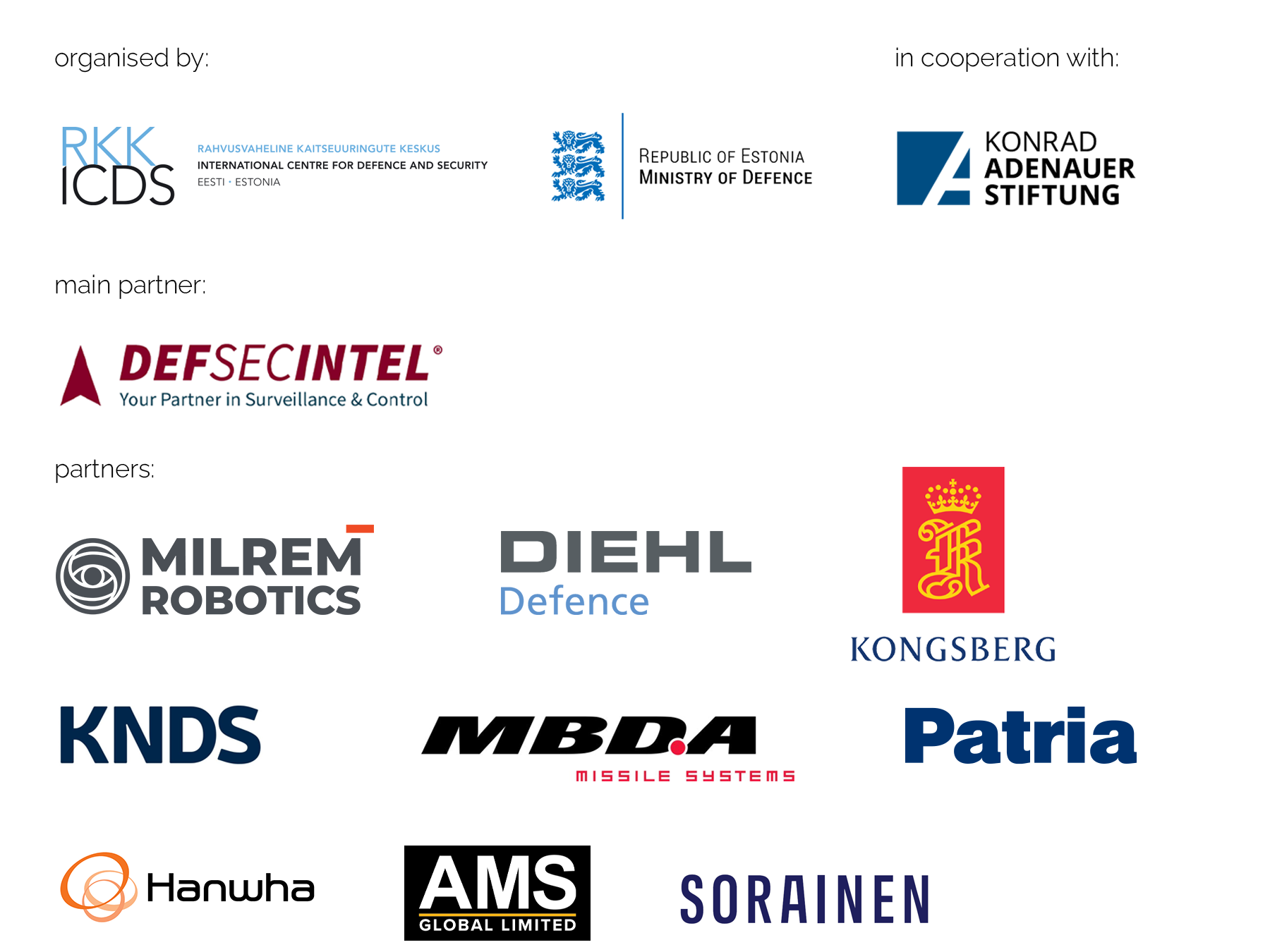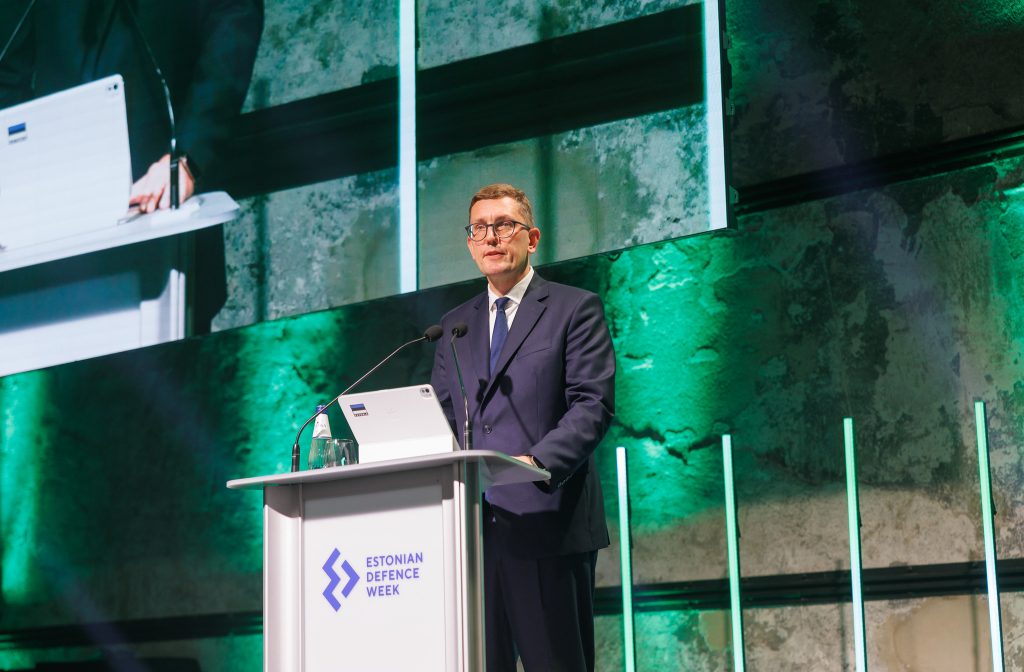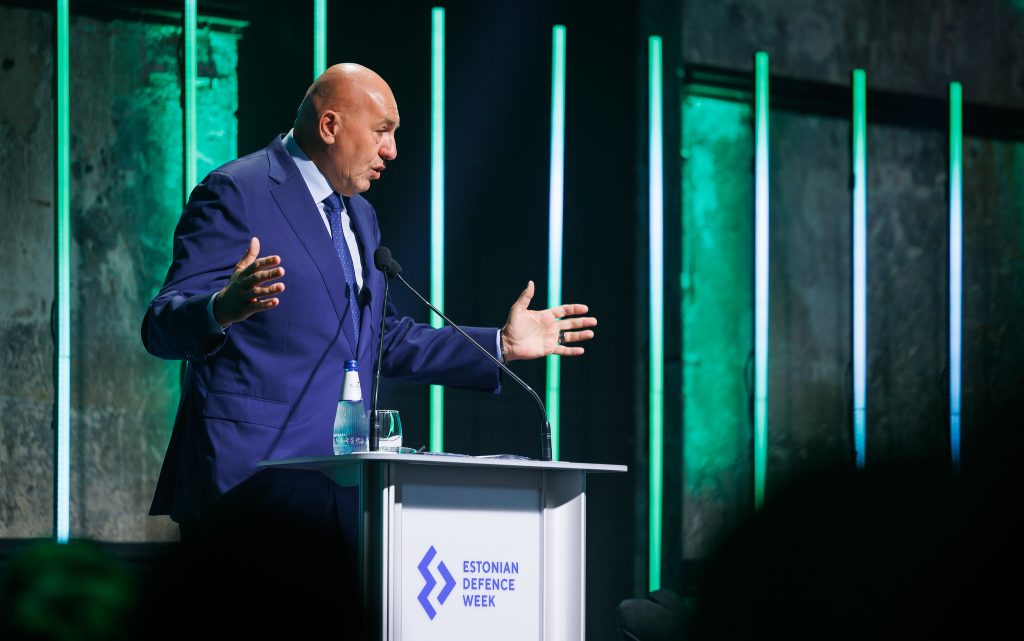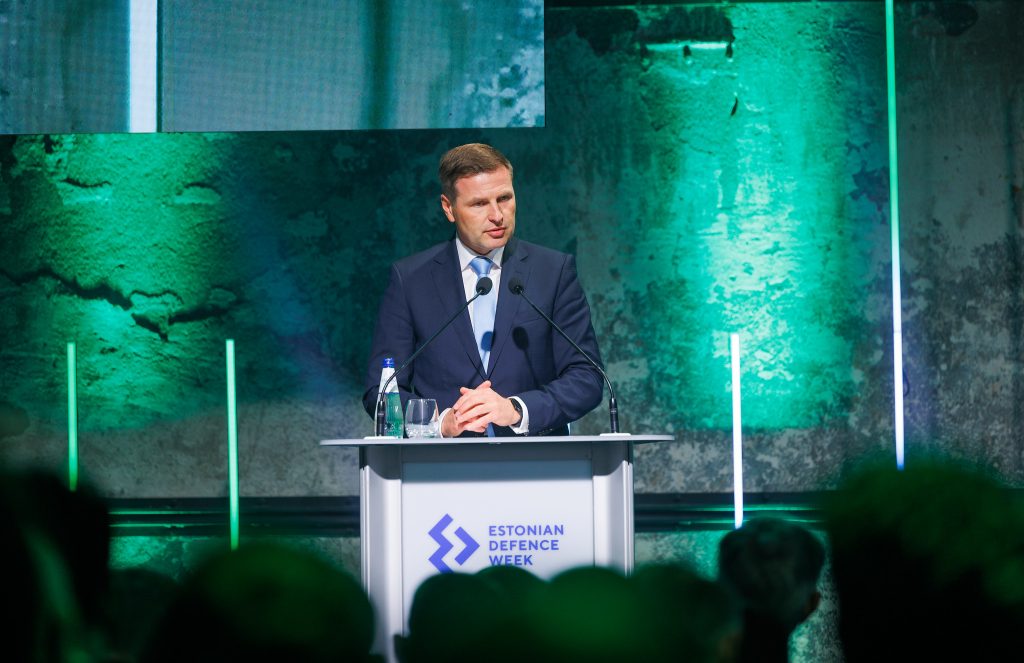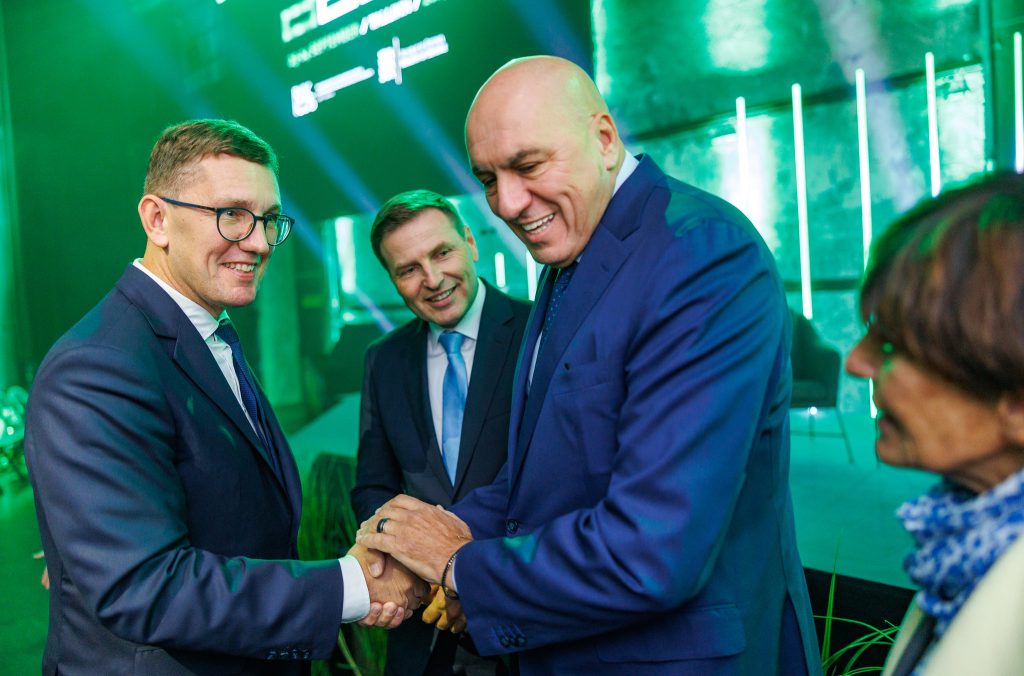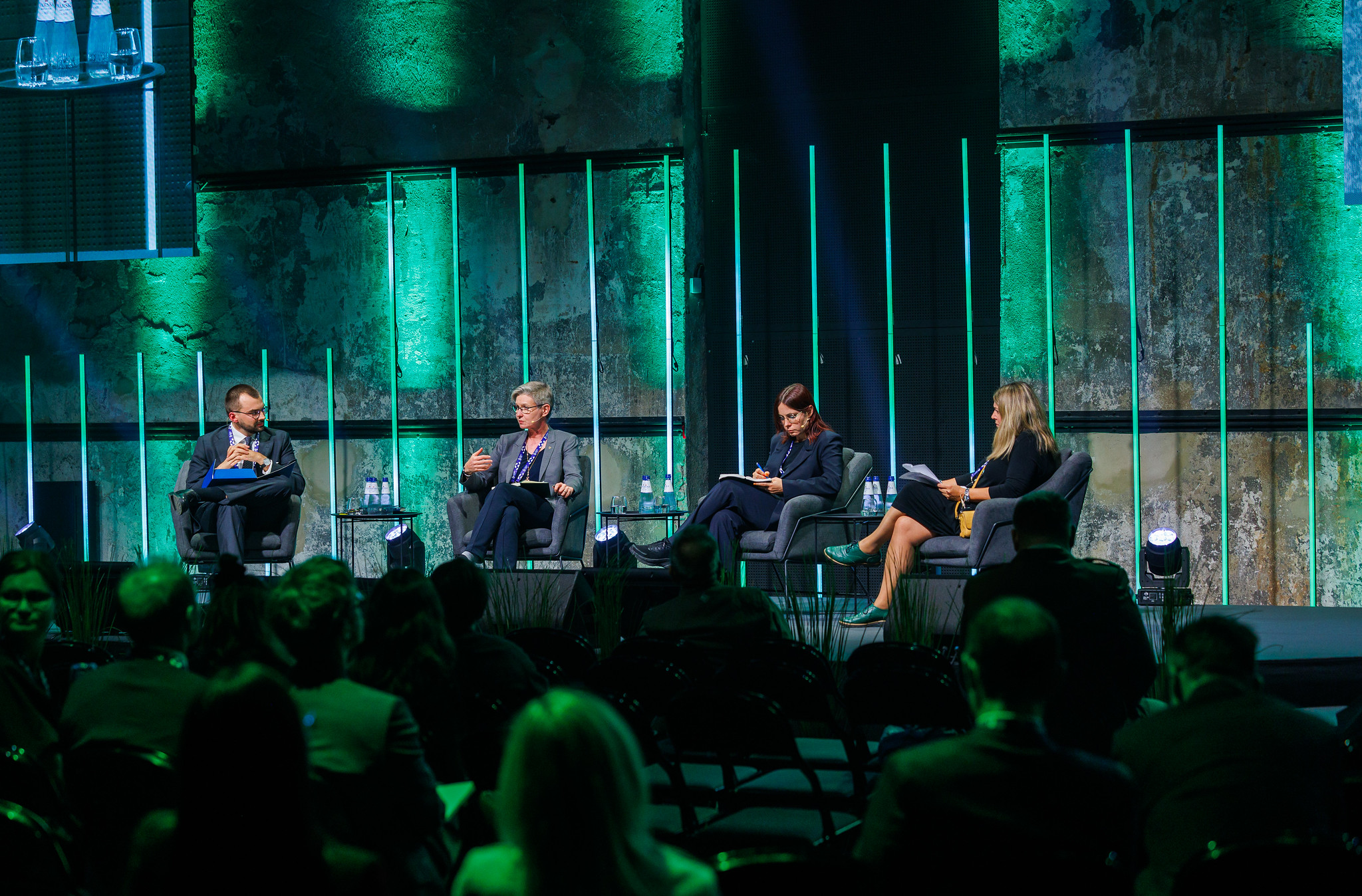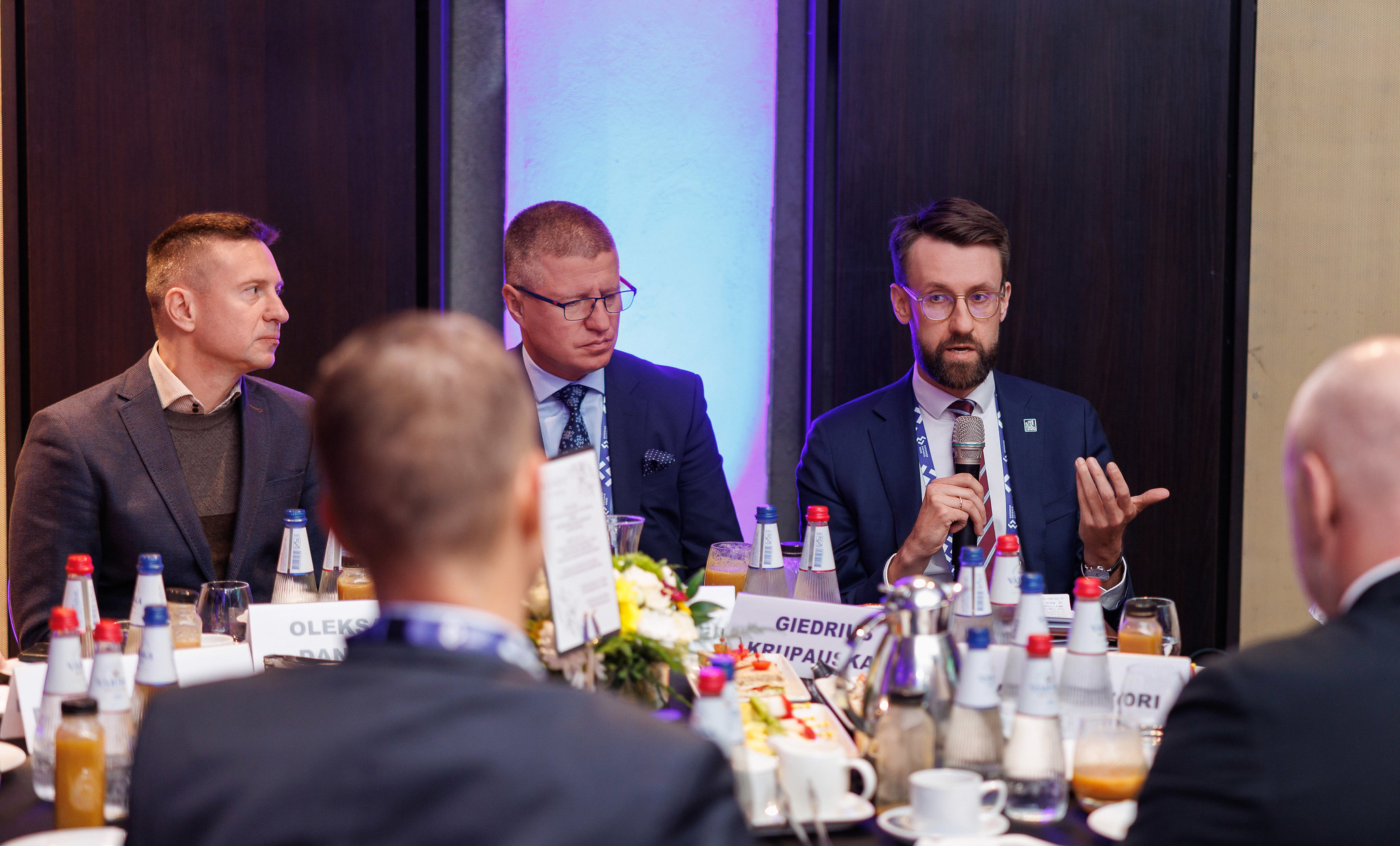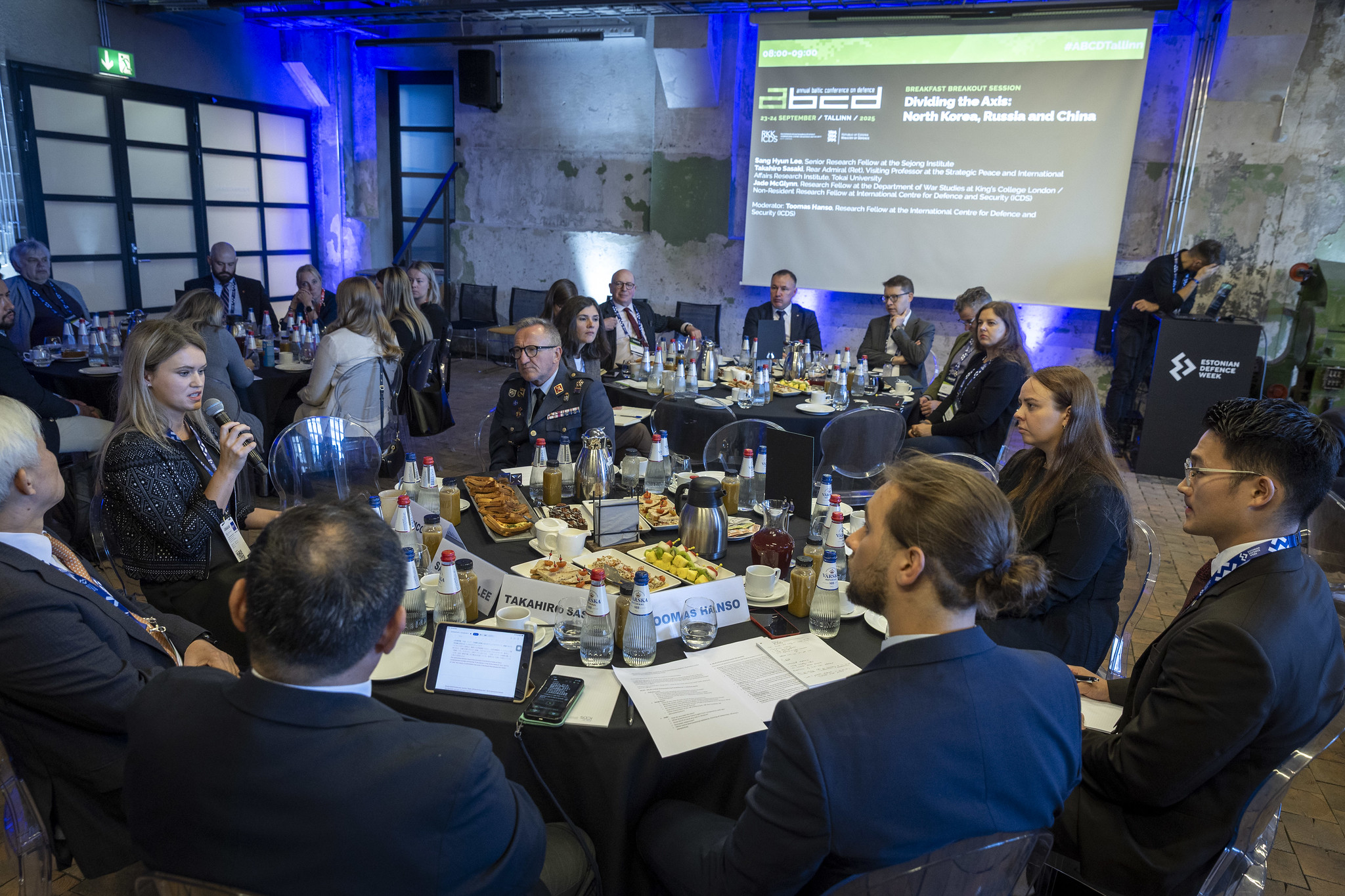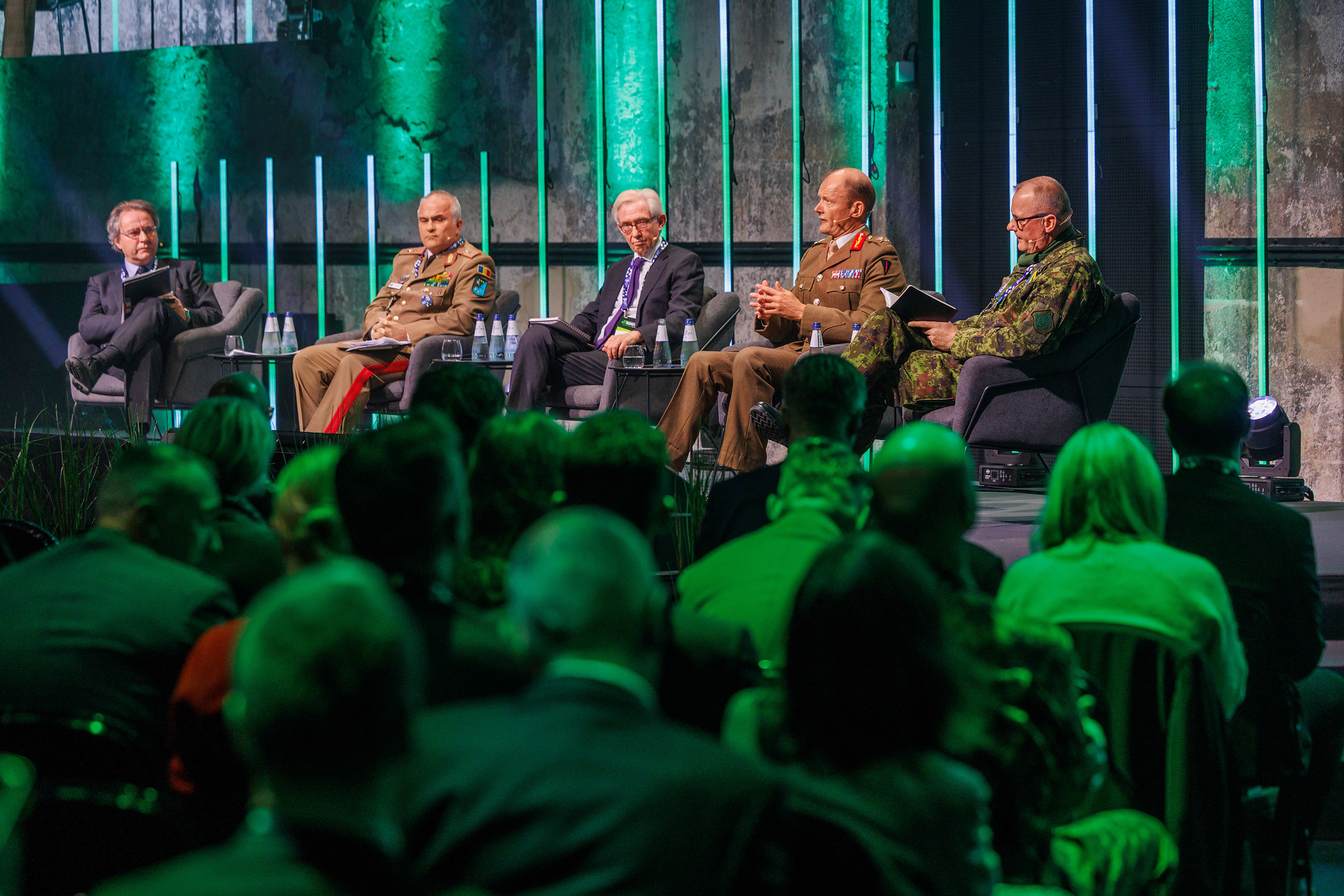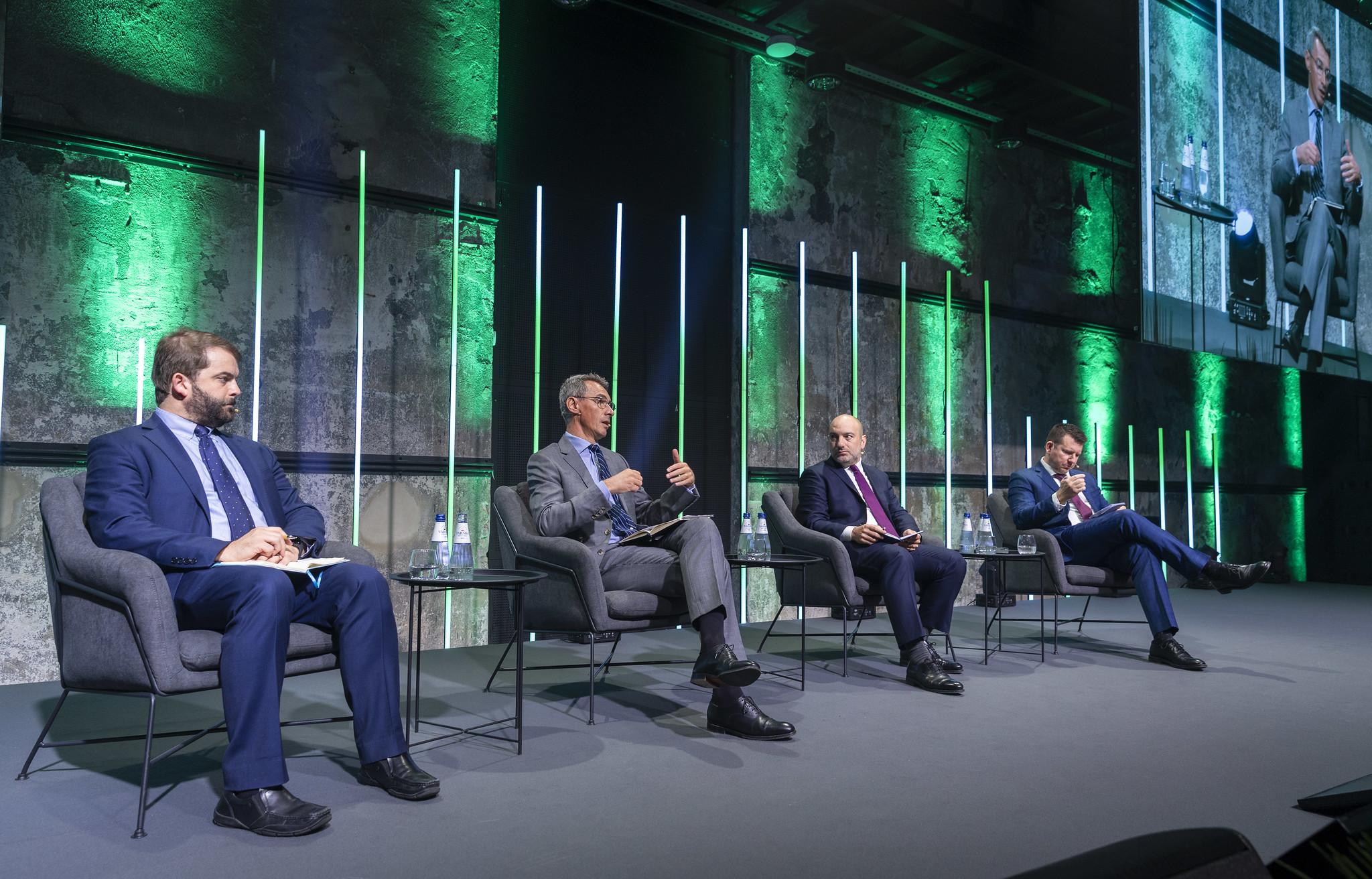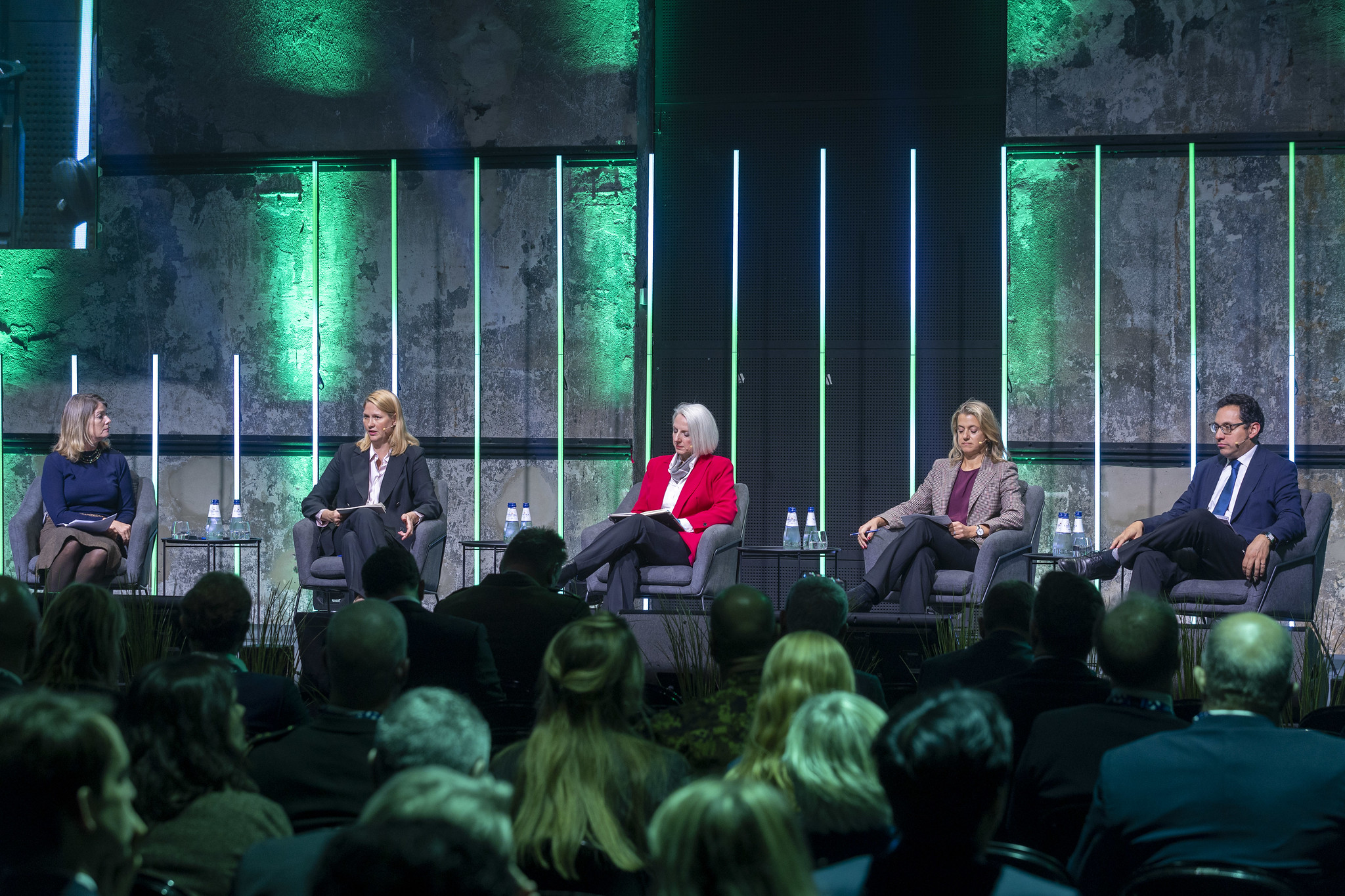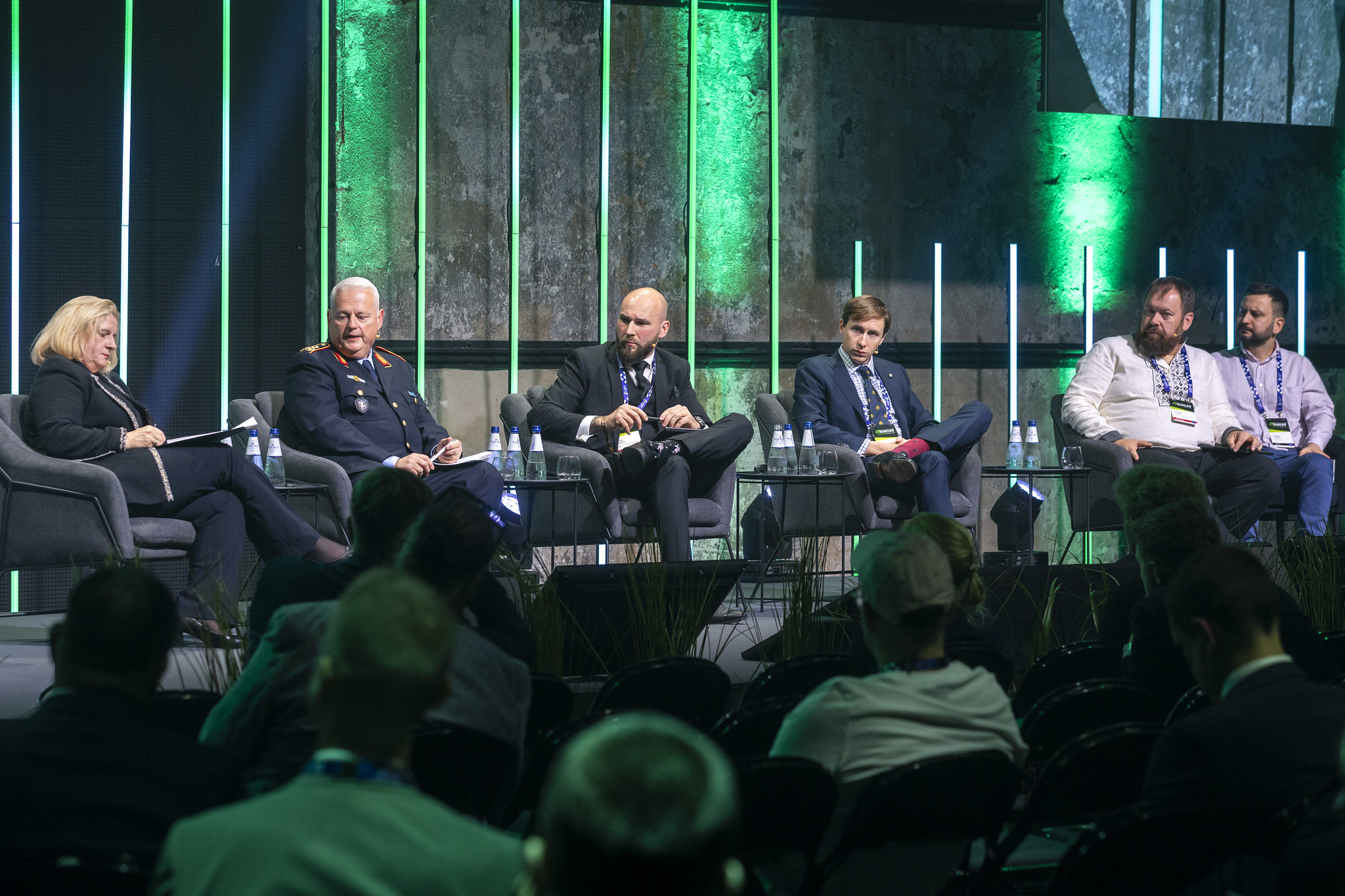Summaries of ABCD 2025
The Annual Baltic Conference on Defence (ABCD) 2025 titled “Enemy at the Gates: Turning Europe into a Fortress” focused on shoring up Europe’s defences, whilst adapting to the realities of the security environment. The decisions taken at NATO Hague Summit reflected Europe’s readiness to take more responsibility for its security, with more countries levelling up to the ‘5% club’. The discussions focused on additional measures NATO Allies and the EU Member States must implement post-Hague to enhance Europe’s military readiness and NATO’s collective defence, prospects for an effective European cooperation to fill military capability gaps, financing of our common defence efforts, the role of innovative and asymmetric technologies on the modern battlefield.
ABCD 2025 Key Takeaways:
- Heightened Security Threats and Military Readiness
The conference highlighted the immediate threat posed by Russia, emphasizing the need for Europe to enhance its military readiness and adaptability. The success of Ukraine is seen as crucial for European security, and there is a strong call for building agile and resilient land forces capable of responding to evolving threats at the pace of adversaries.
- Importance of Innovation in Defence Systems
Participants noted the increasing integration of national forces with NATO systems, which enhances readiness and facilitates quicker responses. Innovation is essential to counter Russia’s advantages in terms of mass and momentum, with a focus on developing new digital reconnaissance and strike capabilities. There is a need for a shift in defence spending priorities towards affordable, mass-produced technologies like drones and counter-drone systems.
- Strategic Coordination Between Allies
With the U.S. shifting focus towards China, European allies must take greater responsibility for their security. The conference emphasized the importance of NATO and the EU working closely together, reinforcing their roles in a fragmented global order. The need for a coherent strategy that unites the dual pillars of European security was a recurring theme, highlighting the urgency to address capability gaps and ensure a unified front against threats.
- Challenges in Defense Production and Resource Allocation
Discussions revealed a significant imbalance between financial resources and industrial capabilities in Europe. While there is funding for rearmament, limited production capabilities create competition among Allies, resulting with increased costs. The slow innovation and procurement cycles hinder readiness, necessitating reforms and stronger industrial collaboration across the Alliance to streamline processes and increase efficiency.
The takeaways that follow are not intended to be an exhaustive record of the panels, and the views expressed below were not necessarily shared by all participants.
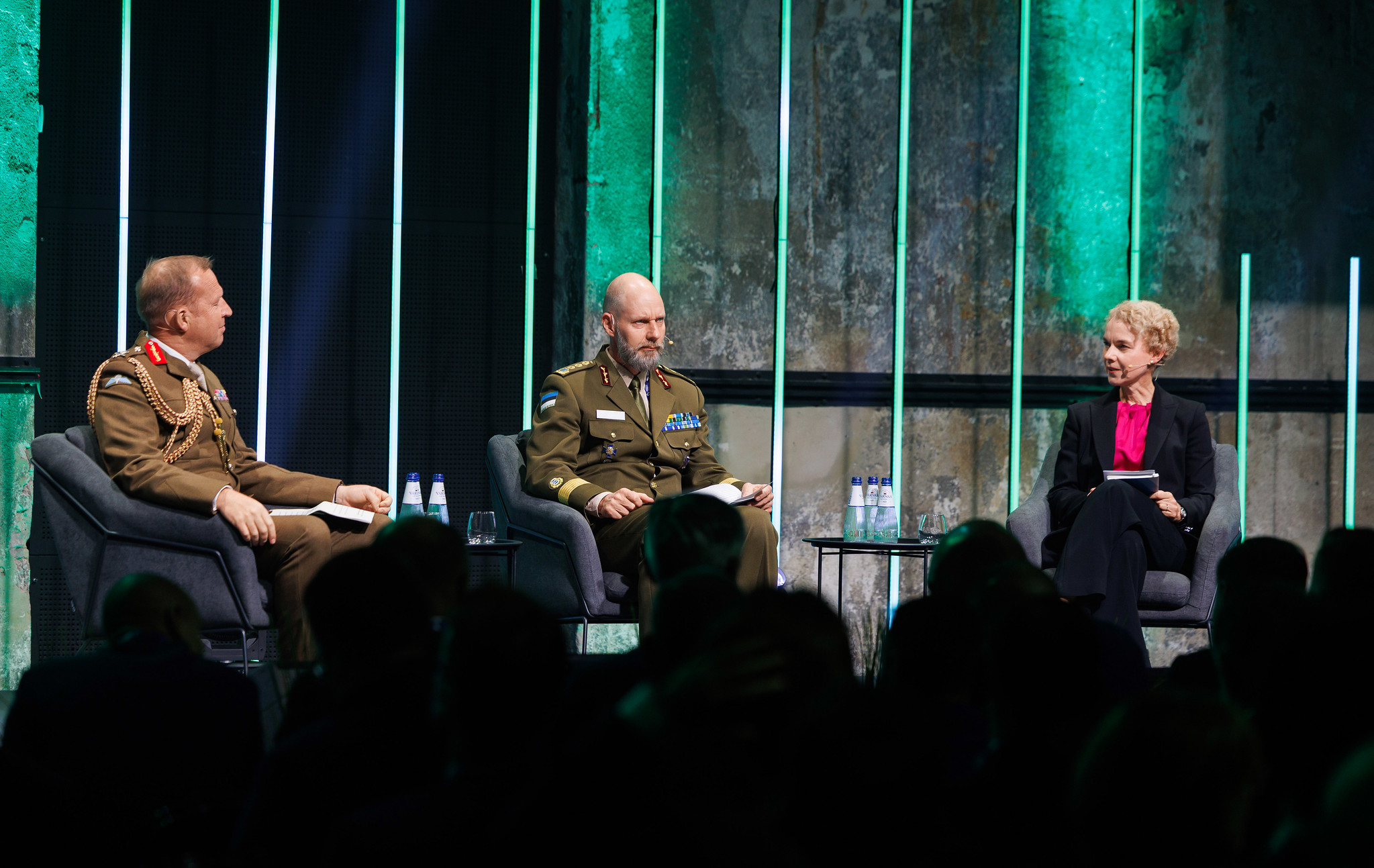
Opening session: Turning Europe into a Fortress
The panellists underlined that the Russian threat feels more immediate, as Russia continues to learn and adapt—improving its military performance, tactics, and technological integration. In response, Europe must learn faster, building agile and resilient land forces capable of adapting at the same speed as the adversary. The success of Ukraine remains the cornerstone of European security and the credibility of the Alliance.
National forces are increasingly integrated with NATO systems, enhancing readiness and enabling faster, more flexible responses under SACEUR’s operational plans. Innovation is central to offsetting Russia’s advantage in mass and momentum, with new digital reconnaissance and strike capabilities, designed to limit Russian manoeuvre. If Russia perceives victory in Ukraine, the next confrontation is expected to surface on NATO’s eastern flank. The Alliance must act with initiative and flexibility, creating dilemmas for Russia while maintaining unity of effort and purpose.
Participants emphasised the growing imbalance between financial resources and industrial capacity. While funding for rearmament is available, limited production capabilities causing competition among Allies increasing costs. The current defence industry model still prioritises expensive high-end systems, despite battlefield evidence pointing to the need for affordable mass, including drones, counter-drone technologies, and simpler precision weapons. Slow innovation and procurement cycles further undermine readiness, highlighting the need for reform, frontline prioritisation, and stronger industrial coordination across the Alliance.
Russia´s war in Ukraine has shown that effective innovation often comes bottom-up, driven by necessity. Soldiers, engineers, and smaller firms are producing rapid battlefield solutions. NATO should adopt a decentralised approach to innovation while maintaining central coordination and standards, fostering closer cooperation between military, industry, and technology partners. Many called for a reset in the relationship between governments and industry, allowing faster testing, prototyping, and deployment of critical capabilities.
The United States is deliberately handing greater responsibility to Europe, which must now act with a broader, more global outlook. Persistent capability gaps—notably in air defence, deep precision strike, electronic warfare, and troop survivability—require urgent attention. In today’s multidomain conflict, a stable ceasefire in Ukraine appears unlikely. Waiting for peace before acting was seen as unrealistic; instead, the Allies must strengthen Ukraine now to shape the security order of the future.
Russia’s War Economy: The Limits of Resilience
The panel provided a comprehensive analysis of the Russian economy’s current state and trajectory under ongoing wartime and geopolitical pressures. Despite initial forecasts of collapse, Russia avoided an acute crisis in 2022 through swift and assertive government measures—tightened financial controls, temporary transaction suspensions, and effective management of the oil shock. The partial mobilisation, meanwhile, did not cause major disruption, and economic activity has remained stable since spring 2022.
Russia’s semi-planned, adaptive economic model has sustained short-term stability by maintaining exports and stimulating public demand. However, spare capacity has been depleted, and prioritisation of the war effort has left the civilian sector underfunded, posing risks of future social discontent. The government had clearly prepared for a prolonged conflict, accumulating reserves and strategic stockpiles in advance. Business actors have shown flexibility in rerouting supply chains, supported by temporary regulatory easing. Yet current growth is dominated by the military-industrial complex, which has expanded production by over 50%, while civilian industries have grown only marginally.
The economy’s dependence on foreign technology and restricted access to innovation are creating permanent structural constraints. Long-term growth will remain subdued, making a return to pre-war conditions improbable. Demographic decline, driven by an ageing population and war-related losses, further limits potential output, while migration cannot compensate for the shrinking labour force, as Russia is increasingly unattractive to skilled workers. Monetary stimulus may offer temporary relief, but sanctions and structural inefficiencies will prevent sustained recovery.
A major trend identified was the redistribution of wealth toward defence, logistics, and import-substitution sectors, transforming Russia’s social and economic fabric. The business elite, though dissatisfied, has shown no capacity to challenge the regime. State appropriation of private assets has emerged as a greater threat to private enterprise than sanctions themselves.
Sanctions have been carefully calibrated to degrade Russia’s military capacity without triggering full economic collapse. Enforcement of export controls has improved, though limited circumvention continues via third countries. Russia’s growing reliance on China has become central to its short-term resilience: China now supplies crucial industrial goods and provides financial infrastructure. However, this creates a strategic imbalance: with around 90% of cross-border transactions settled in yuan, Russia has deepened its financial dependence and risks losing its autonomy.
While the budget deficit remains manageable, financing options have narrowed. The government avoids borrowing, preferring higher taxes that shift the cost of war onto citizens. The weakness of the Russian ruble, rather than oil prices, is now the main macroeconomic challenge.
Russia operates as a market economy subordinated to wartime priorities—it is flexible and state-directed in the short term but constrained by demographic decline, technological isolation, and exhausted resources in the long term.
Breakfast Session 1: Critical Targets: Sabotage and Strategic Defence Across Europe
Participants observed a clear shift in how Russian hostile activities are being discussed in recent years. Whereas terms like hybrid warfare and disinformation once dominated the discourse, attention has now turned to sabotage — encompassing both physical and informational acts designed to intimidate, disrupt, and erode confidence. These operations form part of Russia’s long-standing tradition of active measures, combining psychological influence with covert or overt actions to destabilise democratic societies.
Speakers agreed that the tactics now labelled as sabotage are not new but represent a continuation and evolution of Soviet and Russian intelligence practices. What has changed is their increasingly kinetic nature: operations have expanded beyond online propaganda to include arson, vandalism, and recruitment of local actors to carry out disruptive acts. Such activities often serve dual purposes — causing limited physical damage while amplifying narratives of vulnerability through media attention.
The threat level across Europe has clearly increased, with more frequent attempts at small-scale, destructive or intimidating acts. These incidents are viewed as part of a coordinated Russian campaign intended to undermine public trust, create perceptions of government weakness, and divert western resources. Russia appears to operate deliberately in the “space between war and peace,” considering sabotage a legitimate and proportionate instrument of statecraft that remains below NATO’s collective defence threshold.
Since 2022, sabotage has become a mission-driven element of Russian intelligence activity, serving both retaliatory and deterrent functions. After the expulsion of Russian intelligence officers from Europe, Moscow has adapted by relying more heavily on local recruits, dual nationals, and online coordination, often resulting in operations that vary in sophistication. Even when clumsy or limited in effect, these acts impose high security and investigative costs, making sabotage a low-cost, high-disruption strategy.
Participants highlighted a major vulnerability in Europe’s response: legal inconsistency. In roughly half of NATO countries, sabotage is not recognised as a distinct criminal offence, leading to uneven prosecution and limited deterrence. This lack of harmonisation complicates cross-border cooperation and weakens collective resilience.
While the physical damage caused by recent incidents has generally been minor, their psychological and political impact is significant. The goal is less about material destruction than about spreading fear, confusion, and distrust—all of which exploit the openness of democratic societies.
The discussion concluded that Russia’s use of sabotage will remain a long-term feature of its engagement with the west. Participants emphasised the need for vigilant, proactive countermeasures, greater transparency and public communication, aligned legal frameworks, and closer international cooperation to impose costs on perpetrators. Although disruptive, these threats are manageable when addressed collectively, decisively, and with clear communication to the public.
Breakfast session 2: Dividing the Axis: North Korea, Russia, and China
Participants examined the deepening coordination among Russia, China, and North Korea, describing it as a new phase of trilateral alignment across political, military, and economic dimensions. Since 2024, North Korea’s open support for Russia’s war in Ukraine — including reported manpower, munitions, and equipment supplies — has linked the European and Indo-Pacific theatres, creating what was termed a single “strategic front.”
China’s indirect support for Russia has become vital through expanded trade in energy and dual-use goods, with China now accounting for one-third of Russia’s total trade. This economic interdependence underpins Moscow’s wartime resilience. At the same time, North Korea’s partnership with Russia has not diminished its ties with Beijing; rather, China has reaffirmed its relationship with Pyongyang, signalling a shared opposition to western influence. The joint appearance of the three leaders in Beijing was viewed as a symbolic expression of an emerging “axis of upheaval.”
The 2024 Russia–North Korea Treaty on Comprehensive Strategic Partnership, echoing Cold War–era mutual assistance pacts, formalised their relationship. Although North Korean combat participation is limited, its stocks of ammunition and Soviet-era equipment are critical to Russia’s war effort. In return, Pyongyang reportedly receives food, energy, hard currency, and potential access to advanced military technologies. Any transfer of sensitive missile, satellite, or drone systems was identified as a major proliferation risk, potentially accelerating a regional arms race and heightening nuclear tensions.
The cooperation was described as asymmetric but mutually beneficial: Russia gains essential materiel and manpower, while North Korea gains legitimacy, resources, and battlefield experience. This interaction bridges European and northeast Asian security, illustrating a trend of “strategic simultaneity” — where developments in one region directly affect the other.
The trilateral coordination was seen as part of a broader shift toward a fragmented, multipolar world order, with China’s outreach to like-minded states reinforcing a parallel system resistant to western norms. Collectively, these dynamics not only increase instability and limit prospects for inter-Korean dialogue but also encourage democratic states to strengthen cooperation.
Policy priorities highlighted:
- Reinforce sanctions and export controls;
- Deepen coordination among the US, Japan, and South Korea;
- Develop crisis management and de-escalation mechanisms for Europe and Northeast Asia;
- Engage China diplomatically to limit destabilising behaviour.
The emerging Russia–China–North Korea axis represents a serious strategic challenge, underscoring the need for coherent, coordinated, and proactive responses among like-minded partners.
Session one: Navigating Uncertainty: The Threat in Focus
Participants reflected on Europe’s evolving security environment through a historical lens, drawing parallels between the late 1930s and today. Europe is seen as once again facing a climate of uncertainty, denial, and hesitation, which risks a repeat of the interwar instinct to “delay and deny” decisive action against growing threats. Despite strong institutions and prosperity, Europe’s ability to translate awareness into strategy remains limited.
Deterrence was framed as both military and economic. Participants emphasised that Europe must mobilise private capital to sustain defence production, arguing that current restrictions on lending to the arms sector are inconsistent with long-term security needs. Economic strength and financial readiness were identified as core components of modern deterrence.
Speakers outlined NATO’s cultural and structural evolution, noting improved threat assessment and regional planning, though intelligence sharing continues to face national constraints. The concept of threat was defined as a function of capability, intent, and context, with Russia’s military reconstitution — including expansion of the Leningrad and Moscow Military Districts — under close observation.
Russia’s rapid technological adaptation in drones and electronic warfare was highlighted as a key lesson from the battlefields in Ukraine. NATO continues to refine contingency planning and war-gaming in response. While Russia’s imperial ambitions are clear, a direct attack on NATO in the short term is considered unlikely; instead, hybrid operations — such as cyberattacks, disinformation, sabotage, weaponised migration, and electoral interference — pose persistent threats aimed at undermining western unity.
Participants stressed the need for a whole-of-government response, combining economic, legal, and societal resilience with military preparedness. The war in Ukraine has challenged traditional defence models, showing that innovation, agility, and rapid procurement are as decisive as mass and scale. NATO must, therefore, accelerate innovation, shorten acquisition cycles, and modernise command structures to remain competitive.
Key military lessons include:
- Russia attacks on multiple fronts, supported by preparatory hybrid actions.
- Mass and industrial output remain critical to sustain operations.
- Innovation and precision can offset numerical inferiority.
Session two: Rethinking Grand Strategy: Opportunities and Perils for a Transatlantic Future
Participants discussed that NATO is needed more than ever, as Russia continues to expand its sphere of influence and seeks to undermine Europe’s security architecture. While the Alliance remains the most successful in history, there is a recognition that Europe has long been over-reliant on US capabilities and leadership. With Washington increasingly focused on China and global competition in the Indo-Pacific, European Allies and Canada must assume greater responsibility for their own security. Europe has already taken a leading role in supporting Ukraine militarily and has made important commitments to defence investment, but further progress is required to build and sustain high-end combat capabilities and a credible deterrence posture.
Speakers stressed that NATO remains indispensable as an organisation, particularly in its command, control, and decision-making functions, yet it must evolve into a more European NATO with stronger continental leadership. A more security-oriented European Union was also seen as essential, working in a complementary way to NATO by enhancing deterrence through sustainment, improving military mobility, and strengthening Europe’s industrial base.
It was noted while the US will remain a leader within the Alliance, its priorities are shifting, and Europe can no longer take American intervention for granted — even under Article 5. Participants cautioned that hope cannot replace strategy: Europe must prepare for a future where it provides for its own defence, ensuring that Russia perceives a united and capable European front, rather than a fragmented one.
The discussion underlined the urgent need to reinforce Europe’s defence industrial capacity, simplify regulatory and bureaucratic barriers, and close gaps in multi-domain warfighting. Although US defence production is in better condition, it, too, faces challenges, while Europe has been slower to adapt. The US is gradually reducing its involvement in Ukraine, leaving Europe to shoulder the strategic and material burden.
Participants agreed that this shift marks a permanent transition in transatlantic relations. The dual pillars of European security — NATO and the EU — must work more closely together to make the cost of aggression unbearable for Russia, ensure Ukraine’s survival, and build a sustainable peace. Europe’s awakening to strategic responsibility is underway, but it requires political cohesion, a shared threat perception, and the ability to define a clear strategy. Without those, even the best capabilities will lack purpose.
Session three: Fortifying Europe: Reconciling Europe’s Needs and Resources
The panel explored Europe’s evolving defence posture amid heightened security threats, particularly in light of Russia’s sustained aggression and the lessons from Ukraine. Speakers examined NATO’s adaptation since 2014 and the broader European response to ensuring collective defence in a new strategic environment.
Since the annexation of Crimea, NATO has taken significant steps to reinforce deterrence: the Allied Readiness Action Plan, enhanced forward presence, and regional defence plans. The Alliance’s new “defend forward” concept marks a shift from deterrence by punishment to deterrence by denial—ensuring defence across Allied territories, particularly on the eastern flank. Recent summit decisions, including the Hague commitment to spend 5% of GDP on defence (with 3.5% allocated to core capabilities), signal both recognition of current threats and political resolve to invest in readiness.
The discussion underscored that numerical targets alone do not ensure security; resources must translate into tangible capabilities—ships, aircraft, troops, and modernised defence infrastructure. The need for rapid implementation of spending benchmarks was emphasised to avoid the delays seen after the Wales Summit. Investment must deliver credible, deployable force structures and a stronger European defence industry.
Ukraine’s agility—identifying problems, innovating, and acting quickly—was cited as a model for NATO and the EU. The war has exposed both Europe’s capability gaps and its potential for rapid adaptation, particularly in drone warfare, logistics, and battlefield innovation. Participants highlighted the importance of shortening decision and procurement cycles and moving from “just-in-time” to “just-in-case” industrial models.
Speakers agreed that Europe needs a more resilient, agile defence industrial base with stronger links between governments and industry. Standardisation, interoperability, and especially interchangeability among Allied forces were identified as priorities to strengthen operational readiness. Simplifying procurement and harmonising regulations were also key themes. Several initiatives—such as the European Defence Industrial Programme (EDIP) and Security Action for Europe (SAFE)—were cited as useful tools to drive joint investment and production.
The need for a shift from “peacetime logic” to “wartime mindset” was repeatedly emphasised. Beyond financial commitments, defence readiness depends on societal will—the collective understanding that security requires both resources and resolve. Public awareness, confidence, and participation in national defence efforts were viewed as essential to deterrence credibility.
The panel stressed that NATO remains the cornerstone of Europe´s defence, while the EU provides vital economic and industrial support. Recent accessions to NATO have enhanced coherence in the Baltic and Nordic region, creating a unified security space from the Arctic to the Baltic Sea. Critical infrastructure protection and hybrid threat response were highlighted as emerging priorities.
Europe faces a decisive moment for collective security. To remain credible, Allies must act with pace, investment, and capability—translating political will and financial pledges into military readiness, industrial resilience, and societal preparedness. The defence of Europe depends not only on spending but on the capacity to innovate, adapt, and act together at speed.
Session four: Innovation Under Fire: Adjusting Capabilities and Strategy for Modern Warfare
The panel examined how Europe should adapt its defence capability development in light of lessons from Russia’s war in Ukraine and the rapidly changing character of warfare. Participants discussed the balance between conventional and emerging capabilities, the need for a coherent industrial strategy, and the critical role of innovation and adaptability in maintaining deterrence.
Speakers stressed that Ukraine’s most decisive asset has been its will to defend and readiness to fight, yet the early stages of the war revealed a lack of preparedness and capacity. It was noted that, despite clear warning signs such as airspace violations and increased Russian aggression, Europe still underestimates the threat. The war is now “at the gate,” and the central question is whether Europe is ready for future conflict.
It was observed that the nature of war evolves rapidly—what was effective in 2014 or 2022 may already be obsolete in 2025. For instance, drones, once considered game-changers, are now easily neutralised by electronic warfare. Consequently, investment in defence alone is insufficient unless guided by a clear and flexible strategy. Europe must develop a consistent framework for how it trains, equips, and integrates new technologies into doctrine.
Innovation was highlighted as the true equaliser against larger adversaries. Technological advantage depends less on scale and more on speed of adaptation and decision-making. Integrating digitalisation and software-driven systems into legacy platforms can provide the necessary edge. However, the main constraint lies not in technology but in strategy and institutional culture—Europe lacks the mechanisms to translate innovation into operational advantage.
Participants pointed to historical models such as the National Aeronautics and Space Administration (NASA) and the Defense Advanced Research Projects Agency (DARPA), where government and private capital combined to drive technological breakthroughs with strong returns. Europe was urged to adopt a similar venture-capital approach, funding multiple high-risk, high-reward projects to accelerate innovation. At the same time, Europe must avoid copying Ukraine blindly, as its battlefield adaptations reflect only a fraction of the requirements for future wars.
The character of warfare is expected to be increasingly defined by technology, especially in the digital domain. Ensuring escalation dominance, maintaining open architectures, and prioritising R&D and software development were seen as essential. The group agreed on the importance of European digital sovereignty and fostering more European contenders in the defence market while maintaining strong transatlantic ties.
A recurring concern was the slow innovation cycle within Europe, constrained by bureaucratic regulation and a culture that fears failure. In contrast to Ukraine’s “innovation under fire,” Europe’s peacetime systems remain risk averse. Participants called for greater tolerance of experimentation and failure, improved cooperation between defence planners, industry, and end-users, and regional collaboration to pool limited resources.
The discussion underscored that Europe’s future security depends on its ability to adapt, innovate, and think strategically. Money and technology are necessary but not sufficient; the decisive factor will be Europe’s capacity to integrate innovation into doctrine, reform procurement, and cultivate a mindset prepared for the realities of modern warfare.
